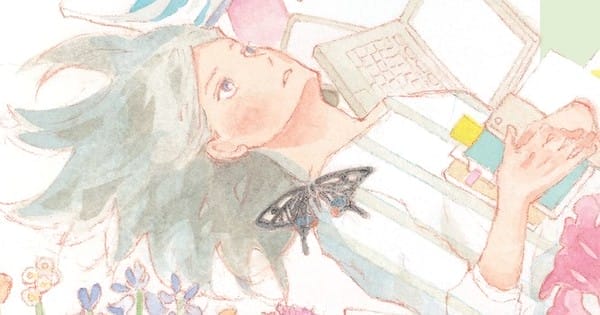
Since I May just Die The following day Manga Quantity 1 Evaluate
There’s a reason why menopause is spoken of as The Change. The cessation of a woman’s fertility and the exit from the menstrual cycle is traditionally, as with most things to do with the female reproductive system, considered at best mildly shameful and often becomes an excuse to make jokes or snark at an older woman’s expense. But the truth of the matter is that it’s just as, if not more, complex than puberty and menarche (or the entirety of owning a uterus if you’re unlucky) and a topic that deserves more open discussion. That makes the translation of this series, which follows a forty-two-year-old woman as she begins to notice and navigate changes, feel like a major boon. It serves a readership that is often ignored in English-translated manga, and like Sex Ed 120% before it, it has the potential to open up frank discussions.
That makes this volume mildly disappointing, although it’s important to note that with three more volumes to go, it’s probable that this is just the setup for what’s to come. (The fact that it won the Excellence Award at the 23rd Japan Media Arts Festival and was nominated for the Manga Taisho Award in 2020 supports this theory.) Protagonist Sawako Honna is a single career woman working for a film promotion company. She’s good at her job and fully immersed in it when she notices some changes in her body. Suddenly, she’s getting hot flashes and heart palpitations when she’s just lying down, and her shoulders are stiffer than anything she’s done (or not done) should make them. After consulting everyone’s favorite source, Dr. Google, she begins to suspect that she’s perimenopausal – in the beginning stages of menopause.
To say that Sawako’s not comfortable with this is an understatement. Like many of us, she rapidly begins to overthink her situation, going from not wanting to see her gynecologist to panicking and calling an ambulance when she’s having a particularly bad moment lying in bed. It’s a familiar routine; she knows she should do something more concrete about the situation, but it simultaneously feels like too much trouble and something utterly terrifying. It’s not that she was ever planning to have children; it’s just that if she is on the cusp of menopause, she can’t pretend she’s still what society considers a young woman, and that not only brings the shadow of her mortality into her consciousness, it also marks a societal shift in the way she’s likely to be treated.
We see this latter element demonstrated in a few ways. Sawako specifically notices that a male colleague around her age (probably older) is treated much differently; his lateness and scattered work ethic are brushed off, even when they interfere with her job. Although she doesn’t necessarily voice it, she’s keenly aware of the difference in their treatment. Meanwhile, her childhood friend Toko is just starting her first part-time job – she married and had a child young, and now, with her husband away and her daughter in college, Toko is left to wrestle with her changing life alone. She’s noticed some grey hairs that aren’t making her happy, and when she takes a job at a restaurant at her daughter’s suggestion, she’s noticeably older than most of the other employees, which makes her a bit uncomfortable. Her daughter’s casual cruelty (saying things like her mom is old and that it’s “cringe” that younger employees are kind to her) makes Toko feel more isolated in her aging process.
The two women’s lives go back to Sawako’s comment in middle school about how she wouldn’t want to live past fifty-five. To a thirteen-year-old, that sounds positively ancient (as Toko’s daughter points out when she notes that a six-year-old would say that she was old at nineteen), but now that they’re forty-two, it’s uncomfortably close. Sawako doesn’t necessarily think about how that’s something she once said. Still, we can see her thinking about how her body’s betrayal feels like a march toward doom, something exacerbated when she meets a colleague who is dying of cancer. Suddenly, the women’s lives feel a little closed-off and maybe worthless, and that’s not comfortable at all.
It’s also not true, but the way that age can sneak up on you can feel that way, and this book does an excellent job of showing that. Menopause is merely a physical symptom of an emotional issue because the truth is that menopause can start relatively young or be forced upon you surgically if you need to have an ovariectomy. (A hysterectomy, or removal of the uterus, doesn’t put you into menopause, as the ovaries provide the relevant hormones.) But it is a marker of the transition to the third Classical stage of womanhood delineated by the “maiden, mother, crone” trinity because if you’re no longer able to become a mother, you must be a crone. That’s what Sawako is working through, and Toko is on the verge of, and it’s not an easy place to be.
Although Since I Could Die Tomorrow‘s first volume doesn’t dig as deeply into its issues as I might have liked, it’s still a solid look at what it means to get older as a woman. The art can be distracting, as it isn’t always easy to tell characters apart, and it’s generally a bit messy. Still, the story is worth exploring, and this series deserves a second volume to see how it develops.


